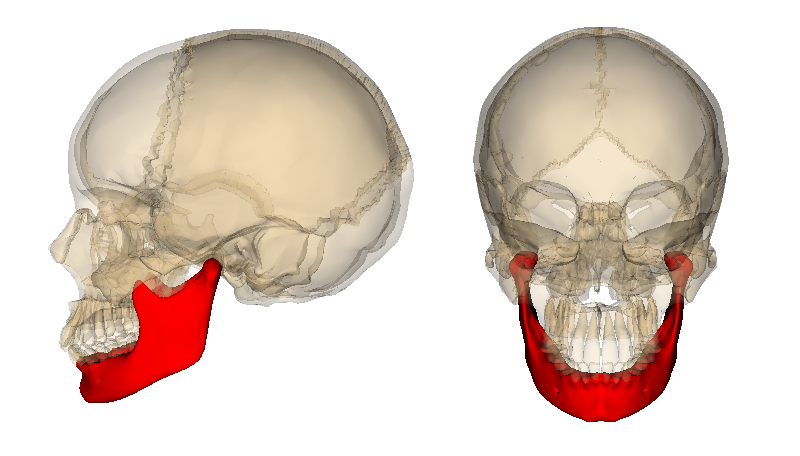What exactly is TMJ dysfunction? Let’s just say at Christmas, it’s that time of the year when there’s always plenty of eating and drinking and it’s not the best time to have TMJ dysfunction.
Have you experienced jaw pain or clicking? Do you also suffer from neck pain or headaches? These can sometimes be caused by the jaw joints.
Your jawbone (or mandible) is the bone that hangs from your skull and creates the lower part of your head. It holds your lower teeth and attaches either side of your head, just in front of your ears. Want to know where? Then put your fingers just in front of your ears in line with the ear holes. Gently open and close your mouth and you will be able to feel movement at these joints. Admit it. You did that, right?
These joints are called the temporomandibular joints, or TMJ. Movement of these joints occur when you open and close your mouth when you’re eating
and talking. As well as opening and closing your jaw, you can move it side to side (like when you’re contemplating your next journey in life). But wait! You can also move it and forwards and backwards!

Image courtesy of – Wikimedia
TMJ issues
A common jaw condition we treat is TMJ dysfunction. This is a relatively broad term to describe an issue with this specific joint. It usually affects women twice as much as men. Challenges occur from the structures in and around the joint, including the muscles, joint surfaces and a small disc which sits inside. Muscle imbalances are frequent and can lead to stiffness or pain (or both) when opening and closing your mouth. Tightness in the surrounding muscles can result from trauma to the jaw (like with being knocked or hitting your chin from a fall), clenching when sleeping (known as ‘Bruxism’), or from dental problems such as having an uneven bite. If you’re highly stressed, this can often make you clench your jaw in your sleep, which may lead to waking up with a sore jaw or headaches.
Treating TMJ Dysfunction
Osteo treatment for TMJ dysfunction depends on the cause of the dysfunction. A muscle imbalance could be corrected by soft tissue release of the jaw muscles, joint mobilisation, and corrective mobility and strengthening exercises. That’s all the good stuff to help release your pain. It is rarely that simple though. More often than not, a TMJ dysfunction will come hand in hand with a problem in the neck and shoulders, be it a restriction of movement or poor stability and strength in the region.
The best thing to do is call us on 03 8080 2981 and book an appointment. Our osteopathy clinic is close to Elwood, near St Kilda Beach.
